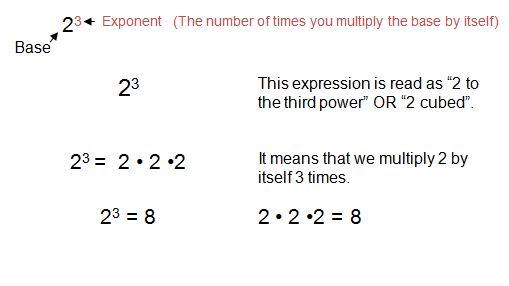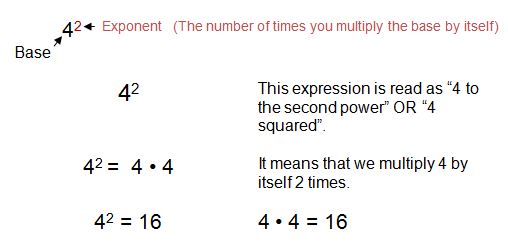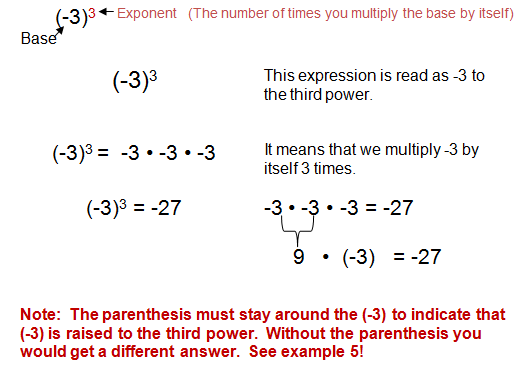Understanding Exponents
As we begin our study of monomials, you will need to learn and understand the use of exponents. So, let's begin by defining the term exponent.
An exponent is a number (small and raised) that represents the "shortcut method" to showing how many times a number is multiplied by itself.
That sounds complicated, so let's look at a few examples:
Example 1

Example 2

Your base can even be a negative number! Take a look!
Example 3: Negative Base
Example 4: Another Problem With a Negative Base
Tip!
Whenever you have a negative base and the exponent is even, your answer will always be positive!
Whenever you have a negative base and the exponent is odd, your answer will always be negative!
Now is the tricky problem! What happens when you have a negative base, but it's not in parenthesis?
Example 5: Working with Negatives

Remember: If the "negative" is not in parentheses, you are not raising a negative number to the power. This means that you take the opposite of your final answer.
Now, I have just one more tip for you when working with exponents!
Another Tip!
When you have a zero as an exponent, your answer will always be 1. The only exception is 00 is undefined.
Examples
40 = 1 or 80 = 1
Now it's your turn! Let's try a few practice problems to make sure you've got it!
Practice Problems
1. 72 =
2. (-8)2 =
3. (-9)3 =
4. (-3)4 =
5. -24 =
6. -43 =
Solutions

This was just a quick review of the meaning of exponents before we get into the laws of exponents and monomials! I hope this gives you better foundation for beginning this unit! Good luck!
The next lesson you should check out is the laws of exponents!

Need More Help With Your Algebra Studies?
Get access to hundreds of video examples and practice problems with your subscription!
Click here for more information on our affordable subscription options.
Not ready to subscribe? Register for our FREE Pre-Algebra Refresher course.







Comments
We would love to hear what you have to say about this page!